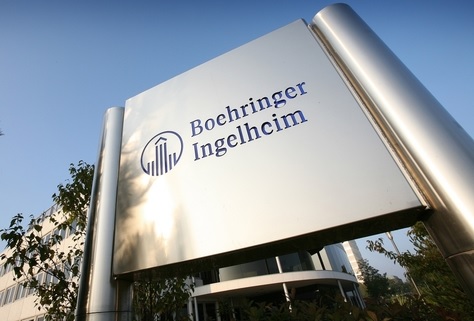- Boehringer Ingelheim and Vanderbilt University collaborate to develop novel anti-cancer drugs that inhibit the MCL1 (myeloid cell leukemia 1) protein
- There are no existing therapies targeting MCL1, which is highly prevalent in many difficult to treat cancers
- This is the third collaboration between Boehringer Ingelheim and Vanderbilt University
Boehringer Ingelheim and Vanderbilt University announced the expansion of their successful existing collaboration to develop novel anti-cancer compounds.
The expanded research partnership will focus on the discovery and development of new chemical therapeutics targeting the pro-survival protein MCL1 as a potential therapy against MCL1 dependent cancers. This is the third collaboration between Boehringer Ingelheim and Vanderbilt University to pursue discoveries made in the laboratory of Stephen W. Fesik, Ph.D., at Vanderbilt University School of Medicine.
“Boehringer Ingelheim and Vanderbilt University have the expertise and are jointly focused on discovering breakthrough medicines against the cancer causing proteins KRAS, SOS and now, MCL1,” said Darryl McConnell, Ph.D., Vice President and Research Site Head, Boehringer Ingelheim, Austria. “Together, we are committed to driving scientific research and development forward to help patients win the fight against cancer.”
“MCL1 is one of the top ten overexpressed genes in human cancer where it plays a role as a survival factor,” said Lawrence J. Marnett, Ph.D., Dean of Basic Sciences in the Vanderbilt University School of Medicine.
“It is a great target for therapy but candidate drugs need to disrupt high affinity protein-protein interactions, which is very challenging,” Marnett said. “The Fesik laboratory has made impressive strides in developing such compounds and it is exciting to see them advanced toward clinical development through the partnership with Boehringer Ingelheim.”
MCL1, when overexpressed, can prevent cancer cells from undergoing programmed cell death (also known as apoptosis). This necessitates the discovery of a molecule that binds extremely tightly and selectively to MCL1 in order to sufficiently induce on-target, mechanism-based cancer cell death.
“Boehringer Ingelheim has an outstanding oncology drug discovery infrastructure that brings various research and development groups together to tackle challenging cancer targets,” said Fesik, Professor of Biochemistry, Pharmacology, and Chemistry at Vanderbilt. “In combination with our multidisciplinary team of structural biologists, medicinal chemists and cell biologists, we will work to search for anti-cancer compounds that inhibit MCL1 in order to tackle this complex area of unmet medical need.”
Boehringer Ingelheim is steadfast in its partnership with Vanderbilt University and is deeply committed to delivering breakthrough, first-in-class treatments to help cancer patients everywhere, despite the challenges that may present themselves. This agreement between Boehringer Ingelheim and Vanderbilt University includes undisclosed upfront and milestone payments, with the ambition of delivering a new cancer drug to market as quickly as possible.
About Vanderbilt University
Vanderbilt University, located in Nashville, Tenn., is a private research university offering a full range of undergraduate, graduate and professional degrees.
About Fesik laboratory
Stephen W. Fesik, PhD, is a leader in the discovery and development of compounds that target cancer-promoting proteins using fragment-based approaches and structure-based design. Drug discovery in the Fesik laboratory (link is external) is a team effort that includes structural biologists, medicinal chemists and cell biologists. In addition to institutional support from Vanderbilt University, the Fesik laboratory receives funding through the National Cancer Institute Experimental Therapeutics Program.
For more information, please visit www.boehringer-ingelheim.com or https://www.vanderbilt.edu/ (link is external).

